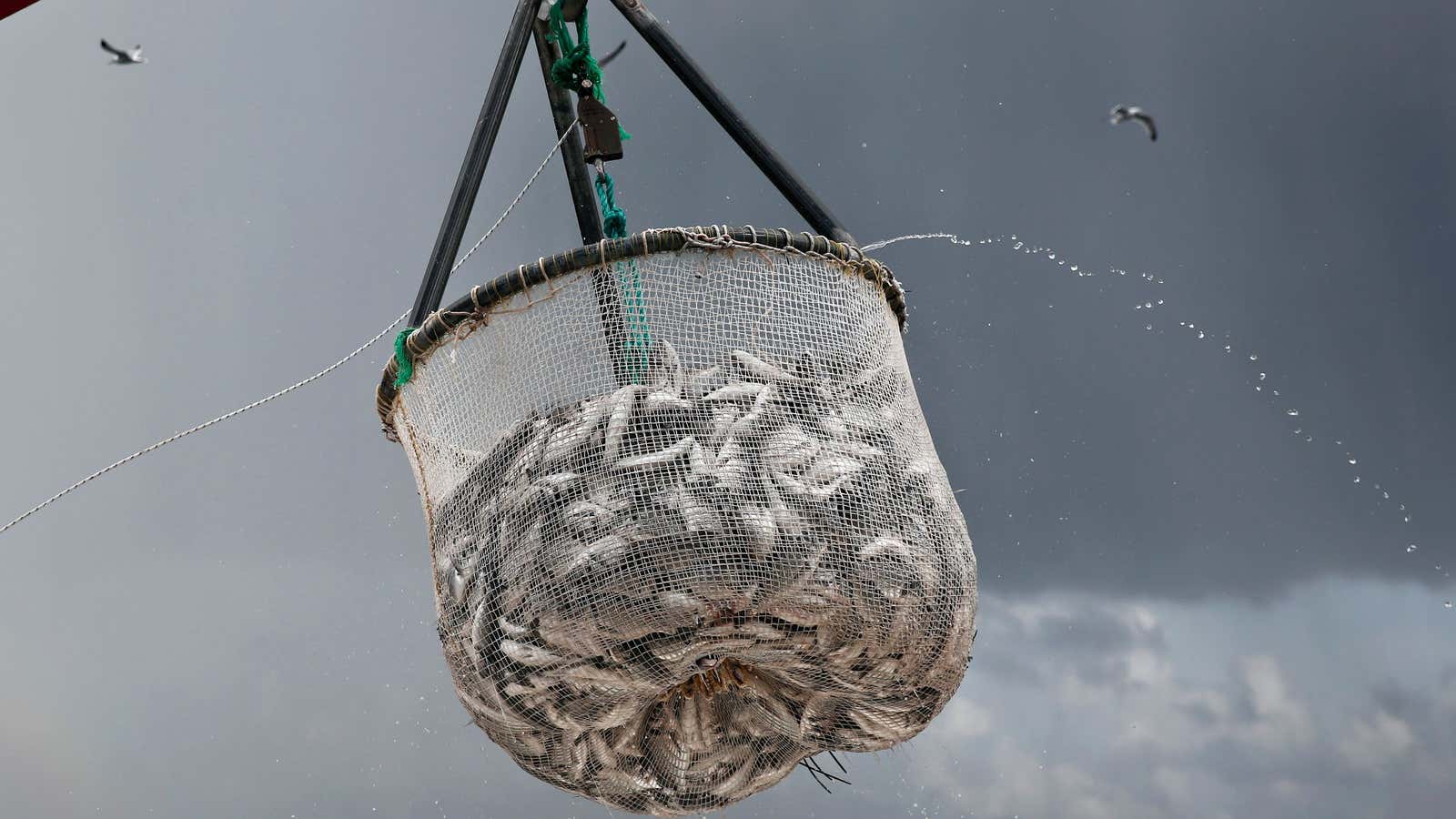Silicon Valley investors don’t usually pay a whole lot of attention to fish. But the world’s protein shortage is convincing venture capitalists that there’s money to be made in aquaculture, the ancient art of rearing aquatic animals and plants for food.
Demand for new ways to feed the world’s 10 billion or so humans by 2050 will inevitably rely increasingly upon the food humans can raise themselves. As wild fish stocks have plummeted, aquaculture is picking up the slack. Today, aquaculture supplies half of all fish for human consumption (up from 26% in 1994), according to the UN (pdf). Investors have taken notice. Since 2013, the number of venture-backed deals in aquaculture-related companies shot up from basically zero to nine last year, according to private equity research firm PitchBook.
Much of the recent investment centers on machine learning, and machine vision in particular. Researchers are exploring how to precisely track, count, and manage millions of fish and shellfish. Since the subjects are often swimming in challenging underwater environments, recent advancements in the use of digital cameras and high-speed computing promise to be a big help in the effort. This year, two of the biggest investments to date have been in Aquabyte ($3.5 million) and XpertSea ($10 million), which announced funding on Apr. 17. Both companies are focused on using technology to improve aquaculture techniques.
“The technology for aquaculture is effectively the same used thousands of years ago,” Andrew Beebe of Obvious Ventures (which backed XpertSea) said in an interview. XpertSea claims that its artificial intelligence and computer vision device count and size live feed such as shrimp larvae, so aquaculture growers can better avoid wasting feed. Just as with terrestrial farms, Beebe argues that the digital technology of factories will be adapted to grow seafood delivering just the right amounts of feed, medicines and other resources. “Our view is that aquaculture is the next phase of precision agriculture,” he said.
